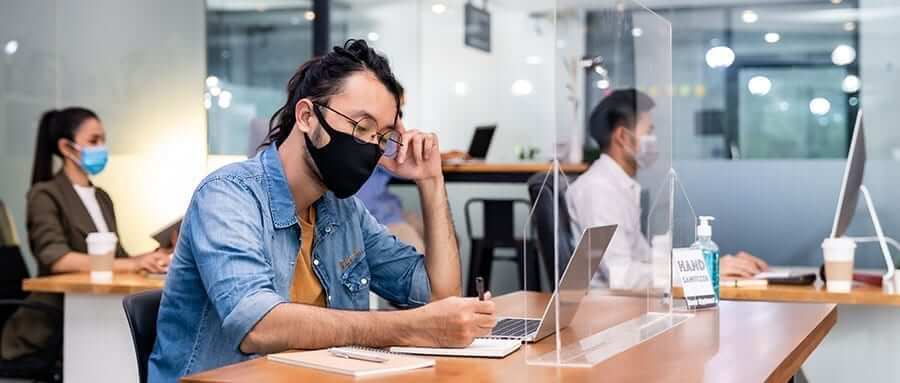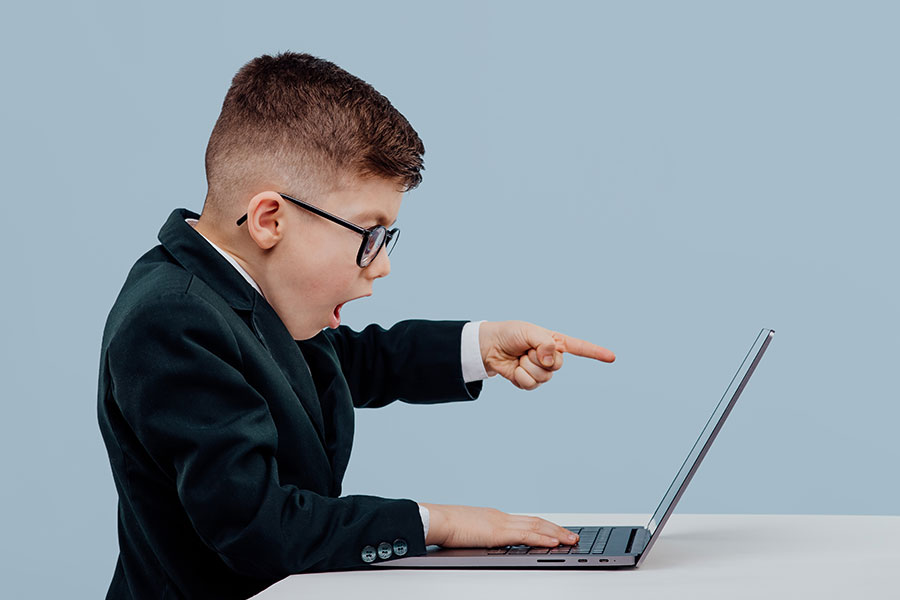- You need to maintain an enhanced on-line presence.
- Remote working is part of the new norm. This means you can shrink your overall space costs and tap into resources anywhere in the country or world. You will need to find ways to engage your staff remote and develop a culture that works in a hybrid environment.
- You will need to continue to invest in technology and cybersecurity. You will have access to so much more information … successful businesses will know how to mine it.
- Socially responsibility needs to be part of your thought process … your customers are demanding it.
- Your marketing efforts need to link your website, SMS marketing (mobile devices), social media, and whatever off-line strategies into one integrated approach.
Unfortunately, there is no magic bullet, and clearly one size will not fit all. You are going to need to assess your opportunities and risks and assessed all components of your business structure to find your business’ version 2.0.
Take for instance Vassilaros Coffee, a more than 100-year-old coffee importer in Queens that relied upon B to B relationships for all its sales. Vassilaros built its model selling coffee and expresso equipment and products to food services businesses such as restaurants, bagel shops, delis, colleges, and the like. When the COVID pandemic hit, Vassilaros realized that the business model that served them so well for more than a century, was going to be the end of them if they didn’t find a way to pivot their business model, as they were down approximately 90% in sales. Vassilaros saw B to C as a natural progression for its product line, looking at supermarkets and on-line avenues as a way to break into the marketplace. In order to effectuate a positive business model change, Vassilaros did the following:
- It started delivering free coffee to hospital, first responders, and essential employees to introduce its coffee to a new group of consumers.
- It reviewed all of its competition’s packaging and created consumer packaging focused on high quality coffee bags and color that stands out on the shelves.
- It invested in social media channels and platforms to increase brand awareness of its coffee among consumers
- It got on the Amazon, Walmart, and other fulfillment platforms to increase its exposure and on-line distribution.
- It gave away free cases of products to supermarkets in an effort to grab scarce shelf space and even created cardboard endcaps to create shelf space where none existed.
- Opened up lines of communication with staff to create a true partnership with staff and management to find creative ideas to move the product.
Today, less than 9 months from it’s pivot, B to C sales have replaced 15% of the B to B sales and it continues to grow each quarter.
Similarly, lock maker, Securitech Group, Inc. out of Maspeth also found itself in a difficult place, when the COVID pandemic hit and businesses were forced to shut down. Management was interested in keeping all of its employees safe and employed, but it was also interested in ensuring that it continued to have product to push out. Understanding the nature of what was happening and the needs of store owners, schools, and others that utilized Securitech products, Securitech petitioned the State to be classified as an essential business so that locking systems would continued to be serviced in light of life-safety and security concerns. Securitech was able to obtain approval, and changed its business operations by:
- Spreading out its work force across different times of the day to reduce the exposure of workers by reducing the number of staff on premise at any time.
- Building an inventory of parts so that if customers had an issue or the facility was forced to close due to an outbreak, parts would be available for a quick fix. Historically, the company did more build to order.
- They created new locking systems that allowed entry via arm or elbow to reduce the amount of “touching” of doors/knobs, reducing exposure.
- Advertised their products to new markets to combat the looting issues that were happening within the City.
- Added more on-line marketing, social media, virtual trade shows, etc. to be able to show off Securitech products virtually, since in person marketing is no longer an option.
- Continued to find ways to keep Securitech staff engaged and connected to the business.
Securitech continues to be the largest lock manufacturer within New York City, because it surveyed the market place, internally determined what was needed to stay nimble in the marketplace, and appropriately pivoted.
Unfortunately, for every Vassilaros Coffee and Securitech Group, there are other business that weren’t able to or weren’t innovative enough to look at their business model and reinvent their new normal. COVID will continue to be a significant factor facing businesses for at least another 5 to 6 months as New York grapples with effective distribution of a vaccine. Even after everyone is vaccinated, it is clear that certain new models have been put in play that will shape business going forward. Has your business successfully pivoted to its new normal? If not, 2021 may be another difficult year.
This article was also featured in our newsletter Bottom Line Vol. 23

Kenneth R. Cerini, CPA, CFP, FABFA
Managing Partner
Ken is the Managing Partner of Cerini & Associates, LLP and is the executive responsible for the administration of our not-for-profit and educational provider practice groups. In addition to his extensive audit experience, Ken has been directly involved in providing consulting services for nonprofits and educational facilities of all sizes throughout New York State in such areas as cost reporting, financial analysis, Medicaid compliance, government audit representation, rate maximization, board training, budgeting and forecasting, and more.

Jacob Lutz, CPA
Manager
Jacob joined Cerini & Associates in January of 2013 and has been actively providing tax, compliance, and business advisory services to a wide variety of both for-profit and non-profit clients.





